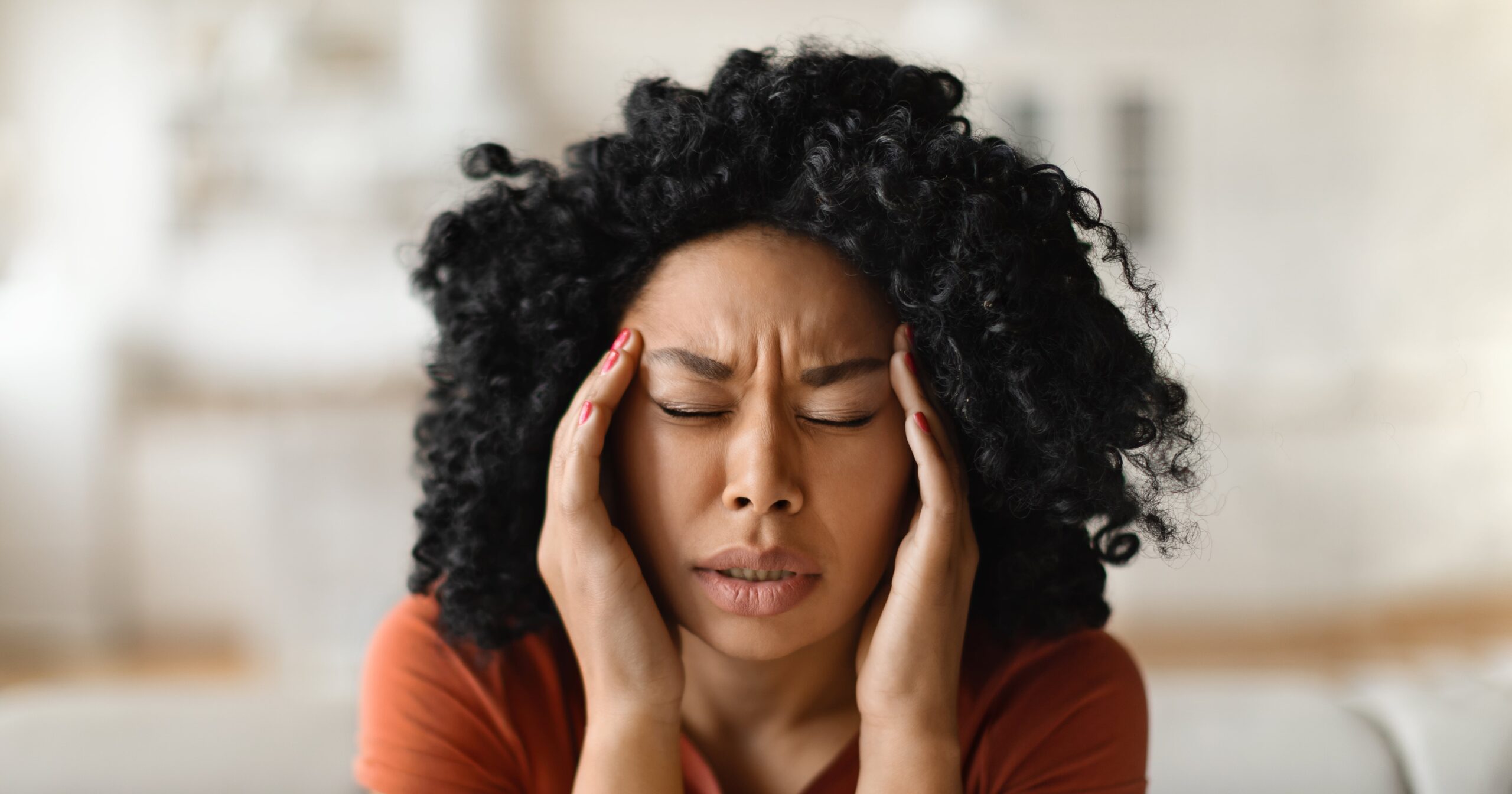Perimenopause entered my life without warning two years ago. In 2022, I was 46 years old and spent the summer in Puerto Rico hosting my first spiritual retreat. The retreat was transformative for me as well as for the women who attended. While we enjoyed various spiritual practices to transcend perceived limitations and heal trauma, my physical body underwent a transformation as well. My menstrual cycle (or as I prefer to call it, my lunar cycle) started during the retreat. It seemed normal at first, but then it continued. And continued until almost three weeks later, when it finally stopped.
I was shocked. Never before had I experienced a menstrual cycle that lasted this long and was consistently heavy throughout. I knew that my body was sending me a signal that a change was taking place, and this change would mean that I had to become familiar with this new version of myself – the version of me that would eventually stop bleeding every month.
It surprised me that I felt sad about this. These waves of emotions would become tidal waves over the next two years as I began to communicate with myself more to understand what my body, mind and spirit truly needed during this transition.
Of course I wanted to talk to other women who had already gone through the journey, but those conversations only instilled fear that I was about to enter the worst time of my physical life ever. These women gave me no words of comfort but instead constantly reminded me of what a horrible time they had during menopause and perimenopause and that it could last for over a decade. Their stories scared me and sent me spiraling until I recovered and reminded myself of all the spiritual tools I have to help me get my mind right around this situation, which in turn would help support my physical body .
My doctor confirmed that I was perimenopausal, which means the production of my ovaries will decrease over time until I reach menopause, but I wasn’t given much information beyond that. I started following women online who were sharing information we weren’t getting from our doctors. A woman asked several female doctors about how much time they spend on perimenopause and menopause as medical students, and the majority said very little or could not recall ever learning about it at all.
Within the Latino community specifically, there is very little discussion of perimenopause or menopause. In turn, many Latinos are faced with figuring things out themselves. For example, research has shown that Latinas can begin to experience perimenopause and menopausal symptoms earlier than other women. Furthermore, research has found that Latinas are in perimenopause for one to two years longer than their white counterparts. Although mine started at 46, just like my mother, it is not uncommon for a Latina to start having symptoms in her late 30s to early 40s. As I’ve been on my journey, I’ve realized that it’s important to talk openly about our symptoms to help us understand our bodies and feel less alone. So here is a bit of my own journey to help you understand yours.
Longer, heavier and inconsistent periods during Perimenopause
Inconsistent menstruation is a symptom of perimenopause to menopause. They can be longer and heavier than before or the exact opposite. Some women even experiencing period pain without having a period. I experienced it for the first time recently. So I keep track of my period in my calendar every month. It is undeniable that my periods are much heavier than ever before. I’ve also had my period twice in a month, and my cycle has changed a few times from starting at the beginning of the month to now, near the end.
PMS is definitely something I experience more and more
About a week before my period starts, I either get extremely irritated or sad. There have been times when I walk outside and suddenly feel a strong urge to cry. Or I am extremely short with my children as my patience wears thin than usual during this time. Those are hard things to admit as a mom, but it’s true. We are human and need to remind ourselves of the big changes that happen without us as we raise our little people. It’s not always easy to navigate, so don’t beat yourself up if you have an off day and may even need to apologize to your kids for raising your voice. I have.
Similarly, I try to be very kind to myself during my lunar cycles. I rest when my body tells me it needs to, and I consume lots of tea and hot soups to ease my mind, body and spirit through the cycle. I take long showers and let the water clean and spiritually cleanse my body.
Night sweats during menopause
Although I don’t experience night sweats often, they do happen from time to time. Out of nowhere I will wake up in the middle of the night in my sweat soaked pajamas. It is unpleasant to say the least. But night sweats during menopause are common and mainly due to fluctuating and declining levels of estrogen and progesterone. When the female reproductive hormones are affected in this way, it disrupts the body’s temperature regulation, which can cause sudden feelings of heat and sweating.
When this happens, I try to quickly turn to gratitude so I don’t fixate on how annoying it is to get up in the middle of the night and have to change sheets and pajamas. Instead, I will begin to pray and thank source that I have clean sheets and PJs to put on and a shower readily available to rinse my body before returning to sleep in a comfortable bed in my safe home.
Brain Fog During Perimenopause
There have been more times than I care to admit when I’ve walked into a room only to forget what I needed to walk in there for. Brain fog is a symptom of perimenopauseand hormonal changes are just one reason why. Remember those night sweats? Well, it can easily disrupt sleep, which can cause increased stress during the day, leaving some feeling tired and distracted.
So remember to slow down and manage your stress with mindfulness exercises. I love doing Kundalini yoga, which uses breath, movement and chant to keep my mind sharp. Meditation is also key; I meditate for five to ten minutes daily in the morning and sometimes even in the evenings. These moments of stillness are extremely helpful in keeping me present throughout the day and very aware of myself. I also enjoy brain games like Elevate, an app you have to pay for, but it’s worth the investment. Puzzles, reading books, regular exercise and even sound baths can help keep the mind sharp.
Sex drive changes during menopause
Because perimenopause is such a transformative time for a woman’s body, it also affects sex drive. For some women, it can mean increased vaginal dryness and low libido. However, it can increase sex drive in some women because the hormonal changes women endure during menopause can produce testosterone and drive libido into overdrive. There are many natural products that can help increase libido and vaginal dryness, such as Brazilian ginseng and Libido Female Gummies. Remember that feelings of being loved and supported by your partner can naturally increase your desire for sex.
Community is needed during Perimenopause
As your body transforms, it’s important to find a community that resonates with you to get the support you need. You can find Facebook groups and Instagram pages like I’m Jackie Meléndezwhich offers lots of information and words of support to women in perimenopause and menopause. There are also informative websites such as Red Hot Mamas, Menopause Charityand Let’s talk menopause. These communities help us remember that we are not alone and do not have to face this alone.
Zayda Rivera is a PS contributor. She has been a professional writer for more than 20 years. Z is a certified Reiki Master Teacher, Yoga and Zumba Instructor, Mindfulness and Meditation Guide, Tarot Reader and Spiritual Mentor.





